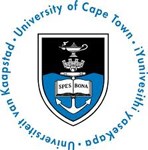
Top stories






LifestyleWhen to stop Googling and call the vet: Expert advice on pet allergies from dotsure.co.za
dotsure.co.za 2 days
More news






Marketing & Media
AI changed how I work as a designer, faster than I expected




















In his thesis titled "Implementation of the Precautionary Approach in the Regulation of Genetically Modified Organisms: An African Context", Moitui focused on regulations regarding the introduction of genetically modified plants into the African environment, and the different ways in which four African countries have interpreted their international law commitments.
He examined various treaties ratified by African countries and the manner in which four such countries (South Africa, Kenya, Zambia and Namibia) have implemented their commitments in relation to genetically modified crops.
Having identified the precautionary approach as the main principle of international law that should dictate how national regulation is implemented, Moitui considers the extent to which good governance and transparency might bolster the precautionary approach in relation to decision making pertaining to permitting or disallowing cultivation of genetically modified crops.
Since biotechnology has proved controversial, with many rejecting it for its possible negative impact on biodiversity, the thesis points to a need for precaution regarding the social and political implications of the technology, especially because once an organism is in the environment it may be difficult to recall and damage may be significant.
Dr. Bavikatte's thesis titled "Stewarding the earth: rethinking property and the emergence of biocultural rights", shows the limited success of technocratic approaches to promoting conservation and biodiversity and arguing for biocultural rights and safeguarding indigenous forms of tenure.
His critical analysis of modern environmental law - founded upon conceptions of property and legal personhood formulated in late seventeenth Europe during the rise of market economies - shows how a discourse of individualised private property came to supersede one of common property, and that today's dominant discourse reflects the hegemony of market values over social values.
Solution in biocultural rights
"Yet the predominance of social relations over economic rights is evident in traditional indigenous communities' tenure patterns," he said. From this basis he argues that any solution to current crises in environmental conservation must be founded in biocultural rights as they are being developed in international law, in treaties and from decisions in international, regional and domestic courts.
Dr. Bavikatte's thesis shows how the strategic bargaining processes of indigenous communities, during negotiations for the Nagoya Protocol on Access and Benefit Sharing (2010), succeeded in establishing acceptance of biocultural rights.